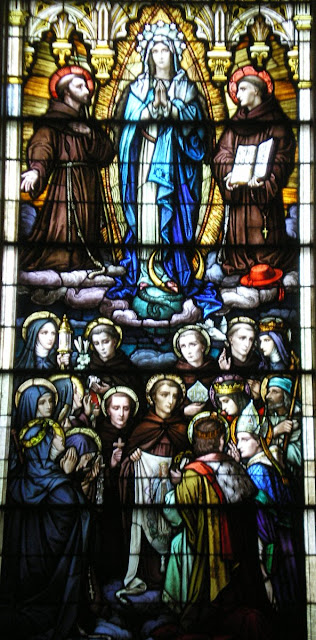The gentleman was no longer interested in going to church after all of the changes in the latter part of the last century, and this was distressing for his wife. An account of how this tension was resolved was presented at the funeral.
One of [the] granddaughters made a beautiful eulogy, at one point explaining that her grandpa didn't like to go to church, but her grandma wanted him to. So when grandma took grandpa to church, he translated all readings and hymns into Latin on the spot and read/sang them loudly that way, which caused grandma not to make him go to church anymore.
Being traddy in order to get out of going to church. That's a new one!










